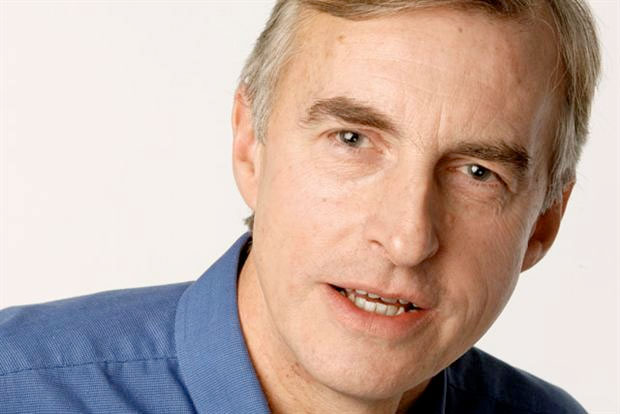Doubtless, a queue of leadership gurus has formed to help Davie and Hall achieve this. Another former P&G marketer, Steve Radcliffe, chief tutor on The Marketing Society’s Marketing Leaders Programme (MLP), for rising stars, argues this “leadership industry” has made the discipline unnecessarily complicated. He is not being facetious – his book on the topic, published in 2009, is called Leadership Plain and Simple.
According to Radcliffe, who has coached chief executives from Boots, First Direct and Unilever, as well as the heads of the Football Association and civil-service leaders such as Lord O’Donnell, the BBC should ask itself a simple question. “It has to start with ‘What future do we want to build?'”, he says.
The BBC’s tribulations are not Radcliffe’s concern, however. Sitting alongside a former client, Aviva chief marketing officer Amanda Mackenzie, in her office overlooking the City, Radcliffe is keen to share his observations on marketing leadership.
What should Tim Davie be thinking?
A fantastic Harvard Business Review paper (1989) called ‘Strategic Intent’, by Gary Hamel and CK Prahalad, says organisations that truly succeed do not start thinking about ‘how good are we now?’, but rather ‘how great do we want to be?’ The BBC should get clear on where it is, but get much clearer on where it wants to be.
What marks out great marketing leaders?
It isn’t people who are better at planning or social media or anything specific – they are a certain way. ‘Future, engage, deliver’ are the common ingredients. To be a great marketer, you have to be in each of the three spaces.
Can a marketer be all three?
I walk into a room once a year with the MLP group, with some of the finest marketing talent in the country, and many of them don’t think of themselves as leaders. We introduce them to something as simple as “make sure you’re up to something in the future”. (But) rarely do we come across someone who is good at ‘future, engage and deliver’.
Any examples of who is?
Christian Woolfenden, marketing director at Paddy Power, is naturally good at “future”, is engaging, and, in his first year at Paddy Power, has delivered. Great marketers are very good at bringing people with them. Take Aviva; marketing leadership there cannot all be done by Amanda, she needs a team.
What holds marketers back?
All of us carry around limiting beliefs, such as “I’m not good enough, not bright enough, not old enough”. A great marketer is not held back by limiting beliefs. Amanda, for instance, has a detachment from the idea that she is “just a girl from Pontefract”.
So what type of leader is Amanda?
We are all a walking bundle of energies. If you walk around Whitehall, the two main energies are intellectual and physical. To be a great marketing leader you need to be sparking things in the other two: the spirit energy of possibility and the emotional energy of “we’re in a team and let’s move forward together”. Amanda brings these four energies and so does (Unilever chief marketer) Keith Weed.
Can young marketers leapfrog the ‘ladder’ if they are exceptional?
It is possible to build leadership muscles faster, but you constantly have to be working on challenges that stretch you.
Are men better at this?
Mackenzie: Men are very good at “where’s the next job”. Whereas girls tend toward – a hideous generalisation this – ‘I’m just going to be brilliant at this job right now’.
Radcliffe: If you go back to the four energies, women bring the emotional and relationship one more naturally.
How does a marketing leader balance a collegiate approach with the need to get the next job?
Mackenzie: You don’t need to plan it. The “rock star marketer” syndrome is what happens when you try to plan it, and then hubris comes off the back of that.
Radcliffe: I go back to my “future” point. Your ‘Next Generation’ candidates (Marketing, 14 November) are being guided by that sense of future.
Radcliffe’s CV
1975: Brand manager, P&G
1982: Marketing director, Tambrands UK
1985: Chief executive, Physicians Formula Cosmetics
1988: VP Europe, Tambrands
1991: Founded Steve Radcliffe Associates

No Comments